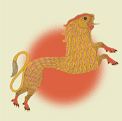
.gif)
Dental Malpractice and the Lingual Nerve
The vast majority of lingual nerve injuries occur during the extraction of a mandibular third molar (lower wisdom tooth) by damage or removal of the lingual plate, or by retraction of the soft tissue, including the lingual nerve, in obtaining access to the mandibular third molar. (See Image #5 in previous page). Damage to the inferior alveolar nerve is discussed later. Although it is likely that you signed an informed consent for the extraction of your wisdom tooth that says one of the inherent risks of a third molar extraction is damage to the lingual nerve, this informed consent is usually nothing more than a proactive measure to convince the patient that his/her injury was just one of those things. The written informed consent does not absolve the dentist from a negligent extraction that causes nerve injury. If there is a complete loss of feeling in the anterior two thirds of the tongue, then this is called complete anesthesia (numbness). If parts of the tongue are numb, but there are abnormal sensations of the tongue, such as tingling, burning, pricking or creeping on the tongue, we call this paresthesia. The word dysesthesia is used to describe an abnormal sensation that is considered to be unpleasant (paresthesia is sometimes used to be inclusive of dysesthesia). If there is complete numbness, then there is no nerve signal getting through from the tongue to the brain and if there is no change in the patient's condition over time, then it is likely that the lingual nerve has been severed. If there is some feeling or paresthesia/dysesthesia, then some signal is getting through the injured area of the lingual nerve and some improvement may occur over time. You can find additional information concerning dental pain and neuropathic pain management from the International Association For The Study Of Pain.